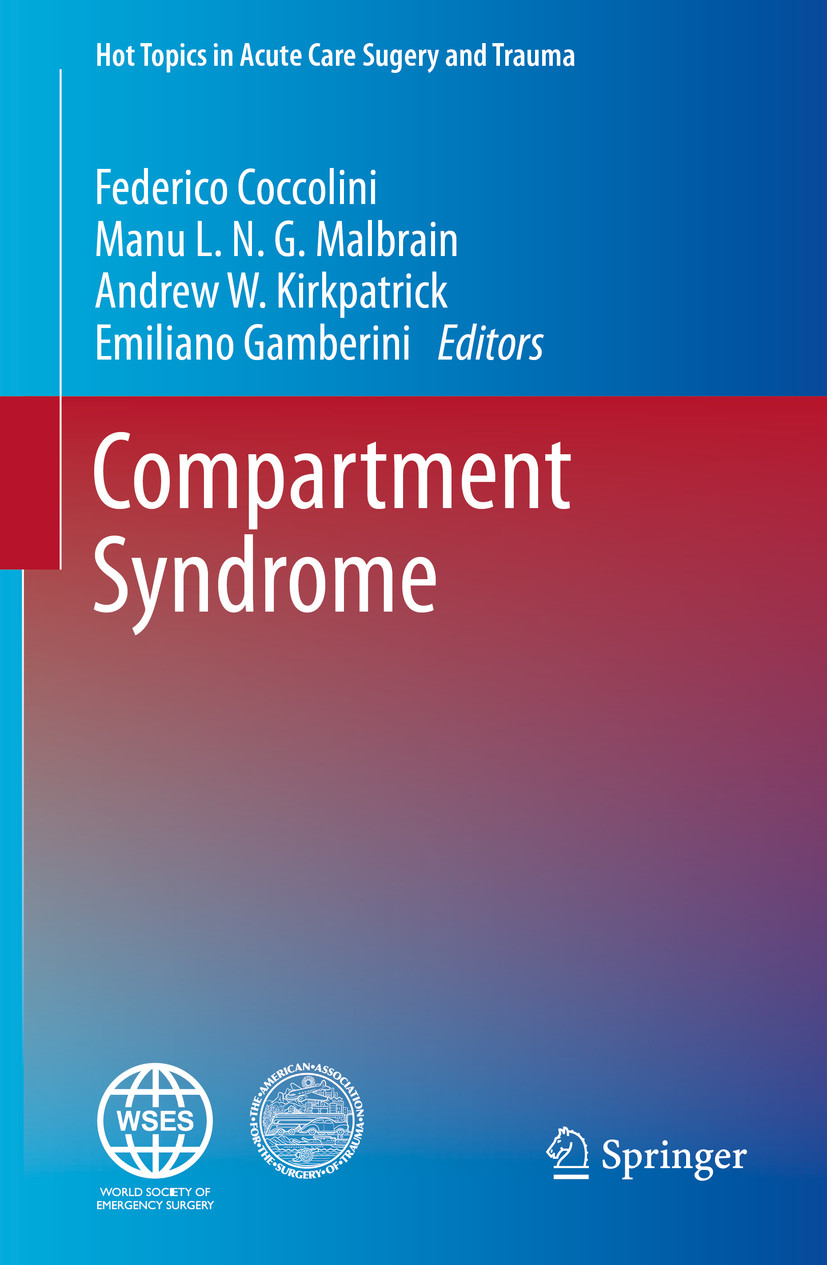Compartment Syndrome
| Auflage | 1. Auflage, 2020 |
| Verlag | Springer-Verlag |
| ISBN | 9783030553784 |
Produktbeschreibung
Comprehensively addressing the topic of the compartment syndrome, this book covers all aspects of this painful and complex condition, ranging from the history to the pathophysiology and treatment in the various body compartments affected by the syndrome, as well as the short- and long-term outcomes. With an up-to-date literature review and the innovative content written by international opinion leaders, it offers all involved in the management of such complicated patients a much-needed source of reference.
Discussing compartment syndrome in everyday practice, this book is of interest to surgeons, practicing physicians, anesthesiologists and nurses.
Federico Coccolini works at the General, Emergency and Trauma Department of the Pisa University Hospital (Pisa, Italy). He has extensive experience in managing post-traumatic and non post-traumatic patients. His principal interests are: emergency surgery, trauma surgery, advanced oncology, oncologic gastrointestinal surgery, laparoscopic and minimally invasive surgery, tissue engineering and experimental surgery, evidence based medicine and evidence based surgery. He is the Principal Investigator of various multicenter studies and registers. He has authored numerous published papers and book chapters, and edited several books as well as a book series. He is also the Research Editor of the World Society of Emergency Surgery (WSES) and of the World Journal of Emergency Surgery (WJES).
Manu Malbrain qualified as an MD at the Catholic University of Leuven, Belgium. He is Director of the Intensive Care Department at the University Hospital in Brussels and a Professor at the Faculty of Medicine and Pharmacy at Vrije Universiteit Brussel. He is a Critical Care Physician with a basic training in internal medicine and is actively involved in the European Society of Intensive Care Medicine, where he chaired the Working Group on Abdominal Problems within the POIC section. A member of the Scientific Subcommittee of the European Society of Anesthesiology, he has studied the effects of raised intra-abdominal pressure (IAP) in general ICU patients for the last 20 years. He is the founding President and current Treasurer of the Abdominal Compartment Society - formerly known as World Society on Abdominal Compartment Syndrome (WSACS) - and he has co-chaired 8 bi-annual WCACS meetings since 2004. He is author and co-author of more than 250 peer-reviewed articles, reviews, editorials, book chapters and two books on ACS.
Andrew Kirkpatrick studied medicine at the University of Ottawa, and after completing a surgery residency at the University of Toronto, he became a Trauma Critical Care Fellow. He subsequently joined the faculty at the University of Calgary as a Clinical Assistant Professor. He divides his time between the Department of Critical Care and the Division of General Surgery, where he is actively involved in general surgery and acts as a Trauma Team Leader for the Trauma Services Program. His areas of research and interest include trauma care, the use of ultrasound in the evaluation of trauma patients, and the treatment and diagnosis of injury and illness in deep space.
Emiliano Gamberini qualified as an MD at Alma Mater Studiorum University in Bologna (Italy). He is an experienced Anesthesiologist and Intensive Care Physician, and is currently Chief Physician in the Trauma Intensive Care Unit and In-hospital Emergency System in Level-1 Trauma Center 'M. Bufalini' Hospital, Cesena (Italy). He has developed a particular interest in extracorporeal multi-organ support therapy, hemodynamic monitoring, compartment pressure monitoring, damage-control anesthesia, and emergency medicine and he is author of several indexed papers on these topics.
